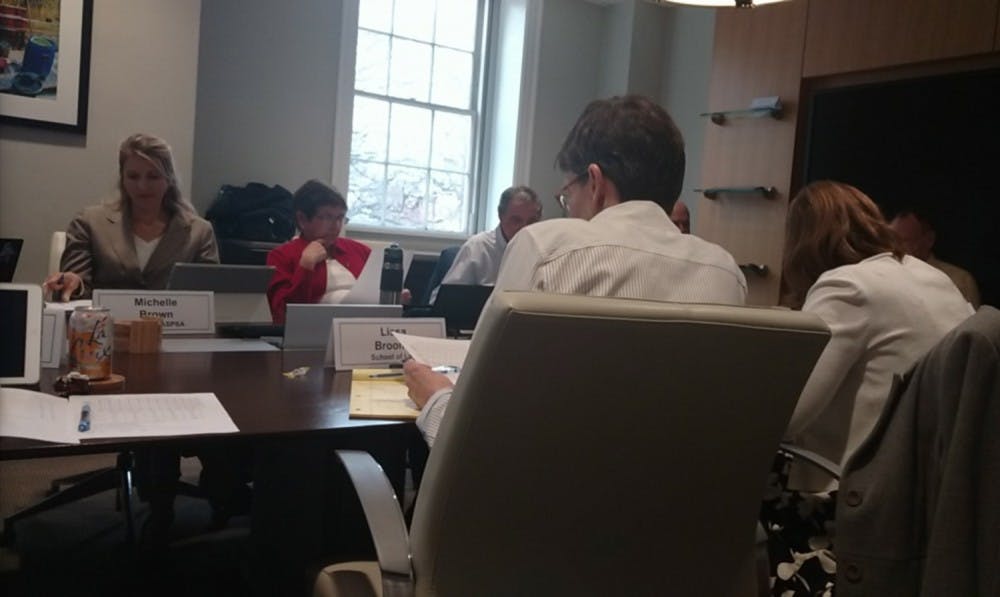What happened?
FAC met to review the NCAA Annual Convention and ACC governance meetings, as well as discuss the compensation of coaches for academic performance and the clustering of athletes into specific majors.
Who spoke?
Broome gave a report on legislation that was proposed during the NCAA Annual Convention, including one proposal that allowed coaches to award financial aid to student-athletes if they have money left over in their budget. UNC opposed the proposal, but was outvoted by other universities 73-7.
“The reason we opposed it, unsuccessfully, was that coaches could potentially set up competition between athletes, which we didn’t think would be a healthy situation,” Broome said.
UNC opposed another piece of legislation that was passed at the convention requiring teams to have one day off per week during pre-season practice periods.
“This will potentially back it up into starting football camp during the final exams of second summer session,” Broome said.
Cunningham explained the academic performance clauses included in coaches’ contracts. The clauses state should the team reach a certain Academic Progress Rate, the coach is able to receive a bonus.




